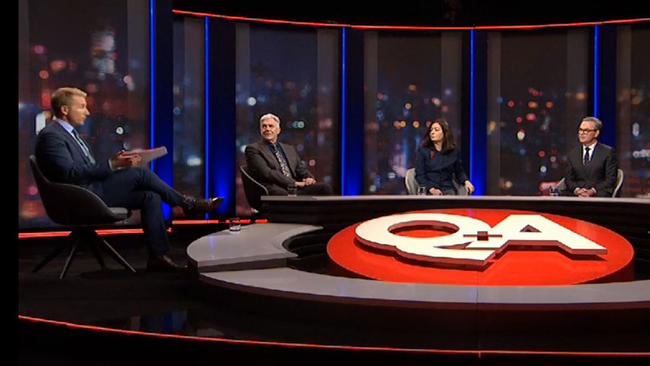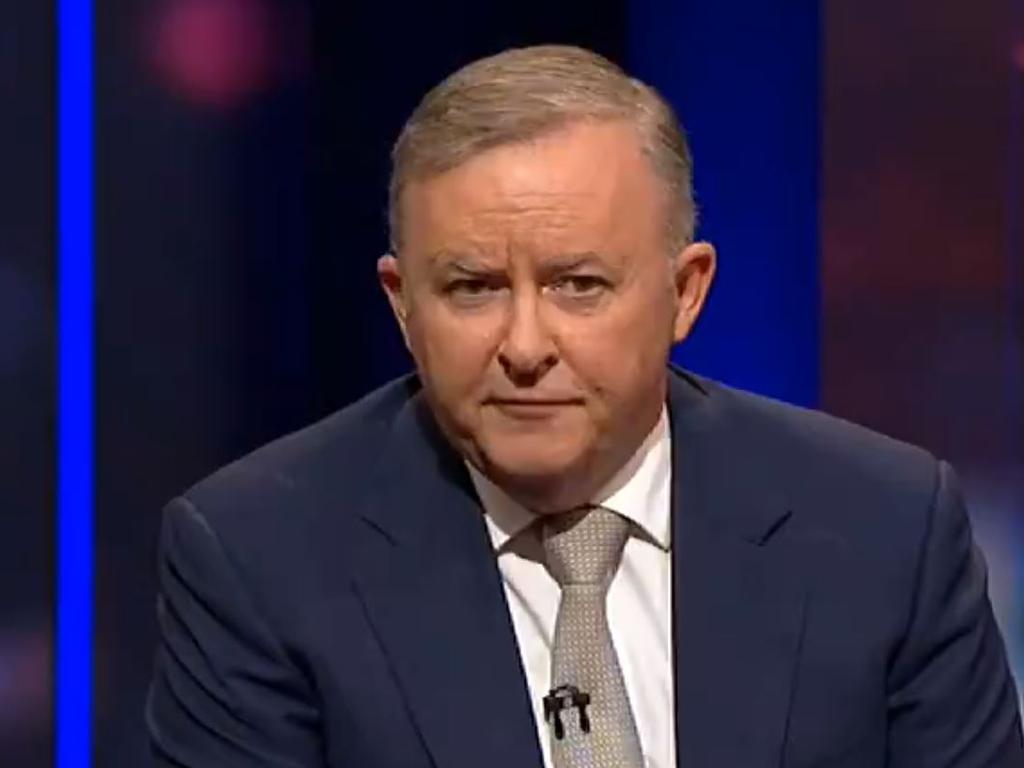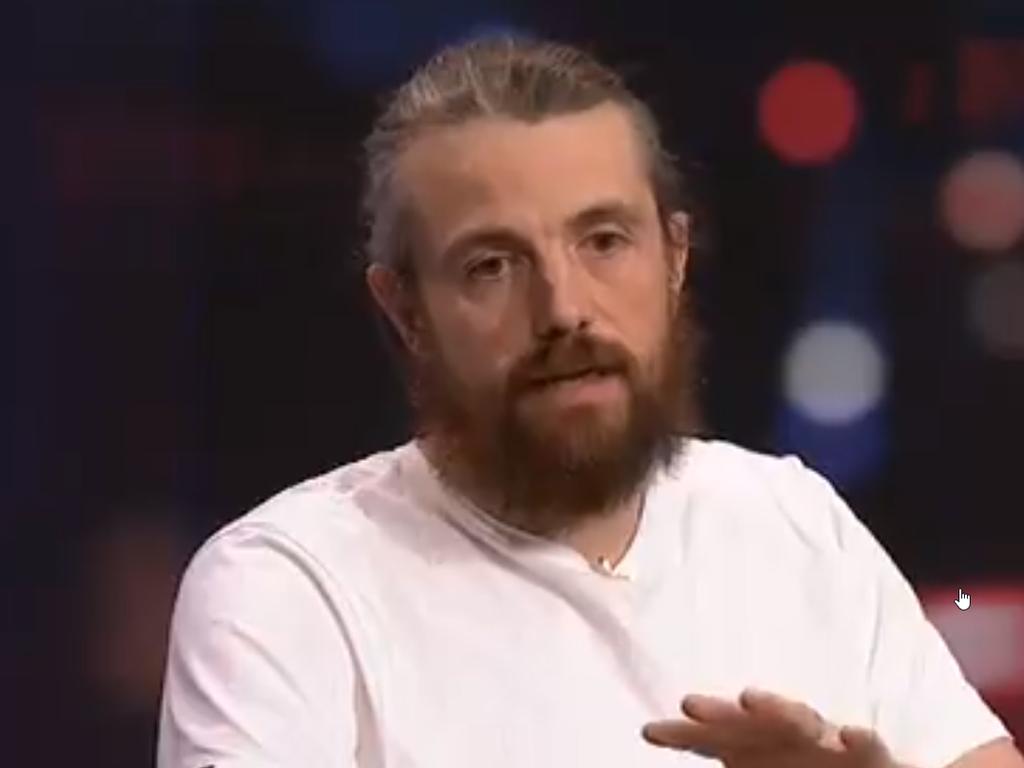QandA: left likely to become more ‘radical’, as Prime Minister’s pub diplomacy questioned
The re-election of Donald Trump would likely lead to the left-side of politics becoming more ‘radical’, QandA has heard.

The re-election of Donald Trump would likely lead to the left-side of politics becoming more “radical”, as Prime Minister Scott Morrison’s pub-friendship diplomacy comes under the microscope, QandA has heard.
With the US election less than a day away, the fissures of American politics were on display on Monday night, as panellists clashed over “Trump Derangement Syndrome”, the election result leading to widespread civil unrest and the President’s track record on foreign policy.
Yet, as with his prominent reflection strategy, Mr Trump took centre stage. His relationship with the Mr Morrison was questioned by New York Times Australian bureau chief Damien Cave, who referred to them as pub-like diplomatic dealings.
Edward asks, “Do you think the left will realise that they are a big cause in pushing people towards Trump?†#QandA pic.twitter.com/tMGgl0kEot
— QandA (@QandA) November 2, 2020
“He understood that Donald Trump cares about personalities and transactional relationships, and so on one hand you could say that Morrison was being very savvy and wanted to protect that relationship because he knows that’s how Trump worked,” said Cave, who formerly headed up NYT’s Miami Bureau.
“By the same token, I came away surprised at frankly just how much the ‘can I get along with him in the pub?’ had sort of defined Australian diplomacy with the United States.”
Assisted by an esteemed panel – including former Republican White House staffer Kim Hoggard, University of Sydney political sociologist Salvatore Babones and The Australian’s Foreign Editor Greg Sheridan – the US election episode confronted the divisive issues facing the country.
The discourse descended into squabbling on several occasions with panellists clashing over major issues present in the US, particularly whether Mr Trump’s time in office qualified as dictatorial.
“Trump is not an authoritarian, he’s an administratively incompetent populist. Authoritarians control the military, they control the judiciary, they disobey the courts when it rules against them, they are very popular, typically,” Sheridan said.
“None of that applies to Trump”.
The Lowy Institute’s Lydia Khalil agreed, noting that the response to Mr Trump’s rise to power, including the Black Lives Matter protest, demonstrated democracy was still thriving in the US.
“But I think to say that America is verging on dictatorship … and this is coming from someone who was born in a dictatorship, Egypt, who has worked in the Middle East where there are dictatorships and you can see the difference in that,” Ms Khalil said.
If Trump wins another term, how will Democrat voters react? #QandA pic.twitter.com/BZfWfz2lBA
— QandA (@QandA) November 2, 2020
“Despite all the erosions to democracy that Trump has done, we have seen a really optimistic and, I think, energising response, and that is what I want to look to.”
Ms Hoggard, however, said there is cause for concern. Rather than governing for the entire population, the President had taken on the “mantle of being the leader” for only “40 per cent of the country”, she said.
“So if you‘re going to be the President of a government, and you spend your entire time devaluing the government, devaluing your diplomats, the Justice Department, the FBI – I mean, what is there left to trust? We can’t even trust the post office now,” Ms Hoggard said.
NYT chief Cave also conceded that despite supporters of Mr Trump being on the receiving end of significant criticism in recent years, he believed the left side of politics was only likely to become more “radical” if the President won four more years in the White House.
“I think it’s Trump derangement syndrome, just the idea of Trump some people have a really hard idea processing. If Trump wins by a few points or loses the popular vote but gets in I think you will see the left get more radical and even more unwilling to accept moderation in any way,” Cave said.
With either Mr Trump or Democratic nominee Joe Biden having major consequences for US conducted foreign policy, Sheridan said the critical issue was confronting Chinese Communist Party leader Xi Jinping. An issue, he says, which has had significant geostrategic development in the past decade.
“I think we’re missing the point here. The big change in international relations in the last ten years is not Trump at all. The big change is Xi Jinping in China. Trump represents really, in many key matters, continuity with Obama,” Sheridan said.
Who will win the US Election? The #QandA panel make their predictions. pic.twitter.com/U0uOcdw9Zf
— QandA (@QandA) November 2, 2020
“Trump is untutored in foreign matters, but he has a good, robust understanding of the crude nature of power.
And the one thing more important than soft power is hard power. He’s leveraged the Chinese.”







To join the conversation, please log in. Don't have an account? Register
Join the conversation, you are commenting as Logout